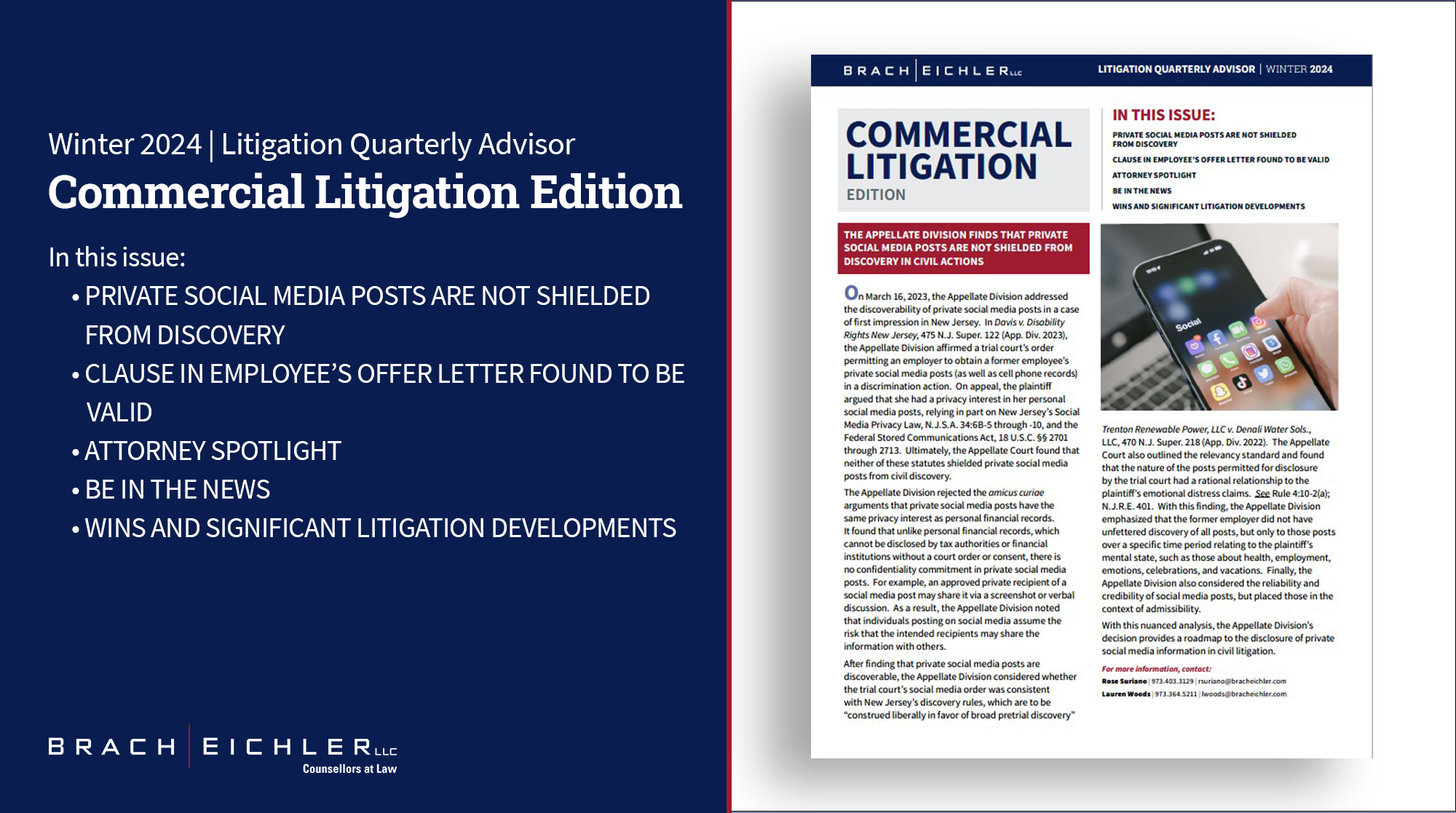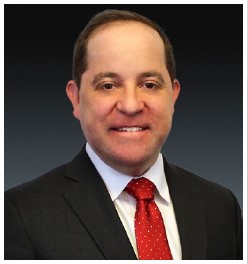
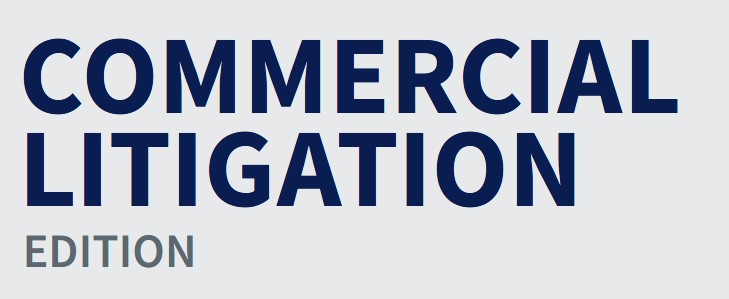
On March 16, 2023, the Appellate Division addressed the discoverability of private social media posts in a case of first impression in New Jersey. In Davis v. Disability Rights New Jersey, 475 N.J. Super. 122 (App. Div. 2023), the Appellate Division affirmed a trial court’s order permitting an employer to obtain a former employee’s private social media posts (as well as cell phone records) in a discrimination action. On appeal, the plaintiff argued that she had a privacy interest in her personal social media posts, relying in part on New Jersey’s Social Media Privacy Law, N.J.S.A. 34:6B-5 through -10, and the Federal Stored Communications Act, 18 U.S.C. §§ 2701 through 2713. Ultimately, the Appellate Court found that neither of these statutes shielded private social media posts from civil discovery.
The Appellate Division rejected the amicus curiae arguments that private social media posts have the same privacy interest as personal financial records. It found that unlike personal financial records, which cannot be disclosed by tax authorities or financial institutions without a court order or consent, there is no confidentiality commitment in private social media posts. For example, an approved private recipient of a social media post may share it via a screenshot or verbal discussion. As a result, the Appellate Division noted that individuals posting on social media assume the risk that the intended recipients may share the information with others.
After finding that private social media posts are discoverable, the Appellate Division considered whether the trial court’s social media order was consistent with New Jersey’s discovery rules, which are to be “construed liberally in favor of broad pretrial discovery”

Trenton Renewable Power, LLC v. Denali Water Sols., LLC, 470 N.J. Super. 218 (App. Div. 2022). The Appellate Court also outlined the relevancy standard and found that the nature of the posts permitted for disclosure by the trial court had a rational relationship to the plaintiff’s emotional distress claims. See Rule 4:10-2(a); N.J.R.E. 401. With this finding, the Appellate Division emphasized that the former employer did not have unfettered discovery of all posts, but only to those posts over a specific time period relating to the plaintiff’s mental state, such as those about health, employment, emotions, celebrations, and vacations. Finally, the Appellate Division also considered the reliability and credibility of social media posts, but placed those in the context of admissibility.
With this nuanced analysis, the Appellate Division’s decision provides a roadmap to the disclosure of private social media information in civil litigation.
For more information, contact:
Rose Suriano | 973.403.3129 | rsuriano@bracheichler.com
Lauren Woods | 973.364.5211 | lwoods@bracheichler.com

A forum-selection clause allows a party to a contract to select where a lawsuit or dispute will be brought. It is a provision in an agreement used to control the forum of a dispute and can preclude a dispute from being filed with a court that is not identified in the forum selection clause. A forum-selection clause in a contract between businesses is typically enforceable. For example, if a contract provides that litigation or dispute resolution will be in the federal court of New Jersey, a party to the contract that is located in Pennsylvania will be compelled to bring the action in New Jersey federal court, consistent with the form-selection clause.
Recently, the United States District Court for the District of New Jersey extended the enforceability of a forum-selection clause to offer letters between an employer and prospective employee. In Saul v. Seeking Alpha Inc., et al., Civil Action No. 23-1405 (MAS) (RLS) (November 21, 2023), the District Court for the District of New Jersey enforced a forum-selection clause contained in an employee’s offer letter and transferred the case to the Southern District of New York.
The NJ District Court concluded the mandatory forum-selection clause requiring all disputes to be adjudicated in New York was enforceable and transferred the matter to the Southern District of New York. The court rejected
Mr. Saul’s arguments the clause was unenforceable due to public policy grounds or because the parties had uneven bargaining positions.
The court further stated that forum-selection clauses will be enforced unless the party opposing the motion establishes that the clause “is a result of fraud or overreaching,” “enforcement would violate a strong public policy of the forum,” or “enforcement would in the particular circumstances of the case result in litigation in a jurisdiction so inconvenient as to be unreasonable.”
A forum-selection clause in a contract is a powerful tool to control where a lawsuit is brought. Your company should review its contracts to determine if a forum- selection clause is present, should be modified, or should be added to future contracts. A forum-selection clause could have a significant impact on the outcome of or expenses associated with a dispute and should be carefully reviewed.
For more information, contact:
Matthew Collins | 973.403.3151 | mcollins@bracheichler.com
Robyn K. Lym | 973.403.3124 | rlym@bracheichler.com
The United States District Court for the District of New Jersey made headlines in a way it probably did not appreciate in March of 2021, when the New York Times described it as “among the busiest courts in the country” while also “extraordinarily understaffed.” At that time, the Times reported that one third of its judicial seats were vacant “and have been for years, leaving each seated judge with a pending caseload that is well over three times the national average.”1 In fact, in one recent matter, a case filed an Essex, County Superior Court, Walker vs. Inspira Health Network, was moved from Essex County to Gloucester county, to allow the case to be heard as expeditiously as possible.
While the number of vacant judgeships2 has come down from its 2020 peak of 72, however, the total number of seats on the bench (17) has remained the same since 2018, while filings continue to rise.3
Furthermore, caseload and disposition statistics do not appear to be moving in the right direction. For example, comparing the numbers as of September 30, 2022 with the numbers through the same date this year shows that
pending cases and disposition times continue to grow:
These numbers (and our own experiences litigating in the District) mean that clients, especially in complex civil matters that cannot be resolved on an early motion directed to the pleadings, have to wait years to reach even the dispositive motion phase, much less a trial. Discovery in even seemingly straightforward suits can still be protracted and expensive, and the caseloads among judges and their magistrates strains the resources available for active case management. Even where an early motion could potentially resolve a matter, those motions may remain pending in individual cases for far longer than the median 10.3 months being reported as of September 30, 2023.
The answer, at least according to Federal Judicial officials, may simply be more authorized judgeships, mediation or discovery masters to move a case along. In 2021, the Judicial Conference of the United States recommended adding five new permanent judgeships, raising the total number from 17 to 22.5 Despite the fact that New Jersey was identified as one of six District Courts nationwide as a “priorit[y] for expedited action because of [its] high sustained workload,” Congress has so far failed to act.6
In the absence of further reinforcements, and in the face of growing caseloads, it is more important than ever that clients be clearly advised of the anticipated timeline well
before embarking on a course of litigation in the New Jersey District Court. The numbers do not lie, and a client looking for a quick fix should know and understand that they may still be in the trenches years after their case is filed, through no fault of the Court or their counsel.
1 See https://www.nytimes.com/2021/03/17/nyregion/
federal-court-nj-judges.html#:~:text=Consistently%20
ranked%20among%20the%20busiest,three%20
times%20the%20national%20average.
2 See https://www.uscourts.gov/judges-judgeships/
judicial-vacancies/confirmation-listing
3 U.S. District Court – Judicial Caseload Profile data from
https://www.uscourts.gov/sites/default/files/fcms_na_
distprofile0930.2023.pdf
4 See https://www.uscourts.gov/sites/default/files/2021_
judicial_conference_recommendations_revised_
september_2021_0.pdf
5 See https://www.uscourts.gov/statistics-reports/
federal-bench-annual-report-2022
6 See https://www.uscourts.gov/statistics-reports/
federal-bench-annual-report-2022
For more information, contact:
Keith J. Roberts | 973.364.5201 | kroberts@bracheichler.com
Theodore J. McEvoy | 973.364.5209 | tmcevoy@bracheichler.com
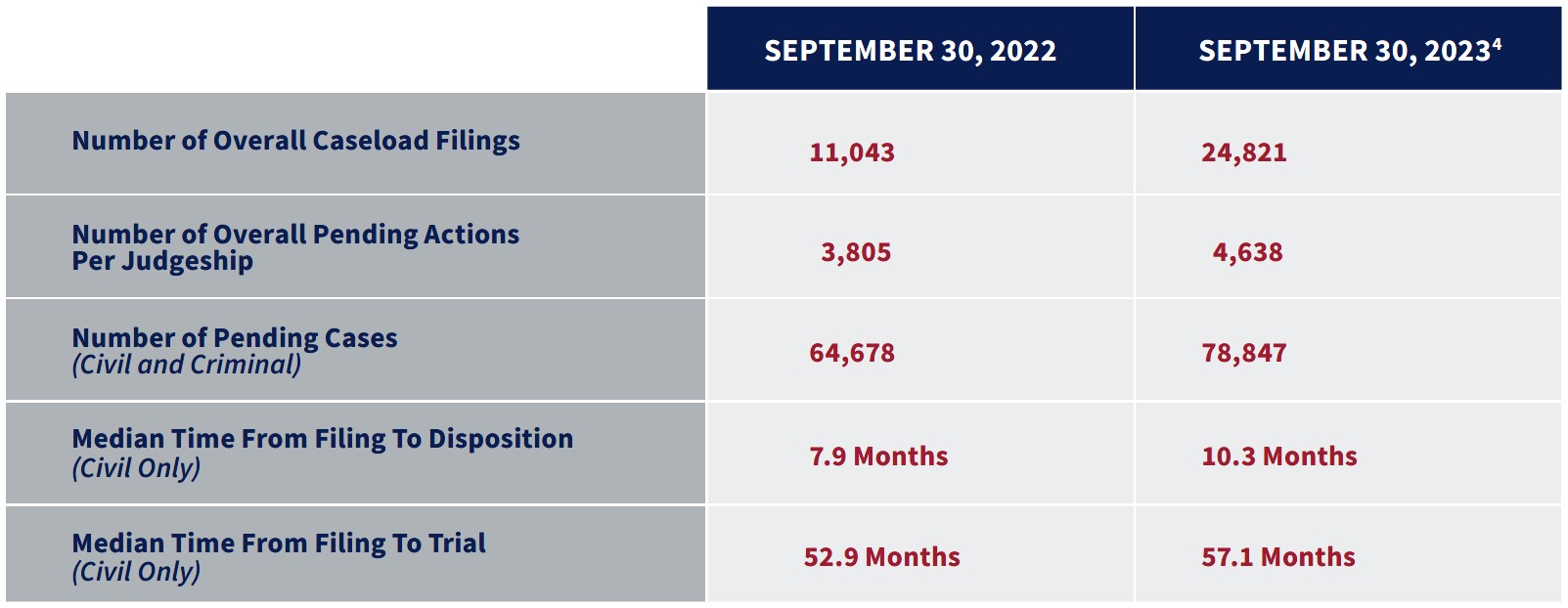

In June 2023, the U.S. Supreme Court, in Mallory v. Norfolk Southern Railway Co., No. 21-1168 (June 27, 2023), held that registering to do business in a state can result in a company being sued in the state’s courts on all claims. A court must have personal jurisdiction over a company, i.e., the power to make a decision regarding the particular company. A personal jurisdiction analysis considers whether the company has ties to the state and the extent of those contacts. There are two types of personal jurisdiction: specific jurisdiction, which permits the court to hear a particular dispute based on the defendant’s contacts with the state regarding that dispute; and general jurisdiction, which allows the court to hear a case against the defendant on any claim.
In Mallory v. Norfolk Southern Railway Co., the Court interpreted a Pennsylvania statute, which provides that foreign (out-of-state) companies must register with the Department of State to do business in Pennsylvania and its courts may exercise general jurisdiction over registered foreign companies on any claim. In that case, the plaintiff, who lived in Pennsylvania, sued the defendant, a company headquartered and incorporated in Virginia. The Virginia-based company argued that a Pennsylvania court does not have personal jurisdiction over the company because it had no ties to Pennsylvania. The U.S. Supreme Court in Mallory held a state can require any foreign (out-of-state) company that registers to do business there to consent to be sued in that state’s courts on any claim.
Since the U.S. Supreme Court’s decision in June, several district court cases have interpreted similar statutes across the United States.
In K&C Logistics, LLC v. Old Dominion Freight Line, No. 2022-CA-00939-SCT, 2023 WL 7870080, at *3-10 (Miss. Nov. 16, 2023) and Lumen Technologies Service Grp., LLC v. CEC Grp., LLC, No. 23-cv-00253-NYW-KAS, 2023WL5822503 at *3-7 (D. Col. Sept. 8, 2023), the courts held that the company does not consent to general jurisdiction in a state where neither the relevant statute nor the case law provide that by registering to do business in the state, the company consented to general jurisdiction.
Similarity, in In re: Abbott Laboratories, No. 22 C 02011, 2023 WL 4976182, at *3-4 (N.D. Ill. Aug. 3, 2023), the court held that a Missouri statute was similar to Pennsylvania’s statute where it provided that by registering to do business with the state, foreign companies have the same rights, duties, and restrictions as domestic companies. Thus, by registering to do business in Missouri, companies consented to general jurisdiction.
AS COURTS CONTINUE TO INTERPRET THE MALLORY V. NORFOLK SOUTHERN RAILWAY CO. DECISION AND THE STATUTES OF VARIOUS STATES, WE WILL CONTINUE TO OBTAIN MORE GUIDANCE ON WHETHER BY REGISTERING TO BUSINESS IN A STATE, A COMPANY CONSENTS TO PERSONAL JURISDICTION.
As courts continue to interpret the Mallory v. Norfolk Southern Railway Co. decision and the statutes of various states, we will continue to obtain more guidance on whether by registering to business in a state, a company consents to personal jurisdiction. A company considering registering to do business in a state should carefully review any registration statutes and the case law interpreting those statutes.
For more information, contact:
Rose Suriano | 973.403.3129 | rsuriano@bracheichler.com
Robyn K. Lym | 973.403.3124 | rlym@bracheichler.com
In Drosos, et al. v. GGLM LLC, et al., A-3674-21 (November 14, 2023), the Appellate Division held that an arbitration clause contained in an LLC’s operating agreement could be enforced against both signatories and non-signatories to the agreement requiring all the parties’ claims to be resolved through arbitration.
The plaintiffs, GGLM LLC (“GGLM”) and Georgios Drosos, its sole member, filed a complex business dispute against the defendants, GMM Global Money Managers Ltd. (“GMM”), Bukleia Holdings Ltd. (“Bukleia Holdings”), Bukleia USA Inc. (“Bukleia USA”) (collectively, the “Bukleia Entities”), Dreamfood USA LLC (“Dreamfood”) and Christos Saava.
GGLM and Mr. Drosos’ complaint alleged Drosos formed Dreamfood to operate a chain of Greek stores, including a Greek bakery and café. Drosos and Dreamfood were approached by a third-party franchise opportunity. The complaint alleged Dreamfood’s plan was to misappropriate business plans and trade secrets for use in other stores and had no intention of purchasing a franchise. The use of Dreamfood’s business information led to a lawsuit. GMM, an investment firm, and Bukleia Holdings, an entity wholly owned by GMM, became involved in settlement negotiations, and GGLM and Mr. Drosos alleged these entities were part of a conspiracy to steal Dreamfood’s trade secrets.
To finalize a settlement, GMM and Bukleia Holdings formed Bukleia USA, who signed the operating agreement and became a part owner of Dreamfood. Dreamfood then hired Savva as its chief financial officer. GGLM and Mr. Drosos alleged that Savva, a representative of Bukleia USA, conspired with GMM to force Drosos out of Dreamfood, appropriate his brand, and breach agreements, creating liabilities to Dreamfood and Drosos personally, and destroying his reputation. Thus, GGLM and Mr. Drosos filed misappropriation, conversion, conspiracy, and other claims.
The Bukleia Entities, Dreamfood, and Mr. Saava moved to dismiss and compel arbitration of the claims based on an arbitration clause in Dreamfood’s operating agreement, as amended. The trial court denied the motion to compel arbitration. The trial court recognized that under Atalese v. U.S. Legal Servs. Gp., 219 N.J. 430 (2014), the arbitration

clause did not mention the signatory as waiving the right to a trial by jury or explain the difference between arbitration and litigation proceedings. The Bukleia Entities, Dreamfood, and Mr. Saava appealed.
The Appellate Division reversed. The Appellate Division held the language in the arbitration clause was sufficiently clear to advise the members that claims arising from the agreement would be resolved by arbitration, and no specific language was required for the arbitration clause to be enforced. The Appellate Division declined to address whether Atalese applies to arbitration agreements between sophisticated parties.
The Appellate Division also held the arbitration agreement could be enforced against non-signatories GMM, Bukleia Holdings, and Savva under agency principles. Because GGLM and Mr. Drosos alleged that GMM and Bukleia Holdings were acting through their agents, Bukleia USA and Savva and the relationships between these entities were the focus of the claims, the arbitration clause could be enforced by these entities against GGLM and Mr. Drosos.
Wider Implications
This decision will have wide implications where business disputes involving sophisticated entities are involved. The court in the Drosos case appears to have eliminated the requirement of very specific and clear jury waiver language between sophisticated business entities and compelled arbitration to parties who were “agents” of the signatories. Arbitration clauses are generally only enforceable against signatories to an agreement. A company should consider reviewing any arbitration clauses in agreements related to parties that signed the arbitration clause, depending on the relationship between the entities and the allegations in the case. Any arbitration clause should be carefully reviewed prior to bringing litigation.
For more information, contact:
Anthony Rainone | 973.364.8372 | arainone@bracheichler.com
Edward D. Altabet | 973.447.9671 | ealtabet@bracheichler.com
Governor Kathy Hochul recently vetoed a bill to ban noncompete clauses in employment agreements. The bill maintained key protections and continued to afford an employer protection of trade secrets, confidential information, and from improper solicitation of clients or customers.
Although bill S3100-A will amend section 196 of the New York Labor Law to expressly ban any restrictive covenant that prohibits any employee “from obtaining employment after the conclusion of employment with the employer included as a party to the agreement, the proposed law will continue to protect employers from the “disclosure of trade secrets, disclosure of confidential and proprietary client information, or solicitation of clients of the employer.”

Notably, there is no restriction or requirement relating to an employee trade, salary, or other similar variable. The veto of the bill that would issue a wholesale ban on noncompete clauses, reinforces the need to protect confidential and proprietary business information and provides continued protection to businesses.
For more information, contact:
Bob Kasolas | 973.403.3139 | bkasolas@bracheichler.com
Eric J. Boden | 973.403.3101 | eboden@bracheichler.com
Get to know the faces and stories of the people behind the articles in each issue. This month, we invite you to meet Member Andrew Macklin and Associate Robyn Lym.
ANDREW MACKLIN
Andrew Macklin practices mainly in the areas of construction litigation, complex commercial litigation, consumer protection and trust and estate disputes. He has achieved excellent results for clients in each of these practice areas at every stage, from negotiation through trial and arbitration. He is admitted to practice before the state, federal and bankruptcy courts in New Jersey, as well as the state courts in New York and the Southern and Eastern Districts of New York.
On the weekends, Andrew hikes with his dog, Tater. He also leaves behind the law to coach various sports teams for his twin sons, Evan and Ryan, and their friends. His wife, Hilary, encourages his coaching decisions from the bleachers.
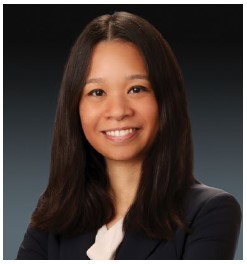 ROBYN LYM
ROBYN LYM
Robyn Lym is an associate in the Litigation Department at Brach Eichler and focuses on commercial, construction, and civil litigation. Robyn’s experience involves multimillion dollar cases, appellate matters, and federal and state litigation involving voluminous electronic discovery, as well as emergent applications seeking injunctive relief. Robyn counsels clients on a range of strategic legal issues, including breach of contract, breach of warranty, consumer fraud, fraud, shareholder disputes, construction disputes involving nonpayment, termination, or construction defects, landlord/tenant disputes, and employment restrictive covenants.
In her free time Robyn enjoys swimming, playing squash, yoga, and cooking. Robyn also enjoys visiting parks and beaches with her family and traveling to the Caribbean.

Keith Roberts released a podcast on Brach Eichler Talks entitled “Tips for Physicians to Avoid Potential Litigations.” Discover invaluable tips to safeguard your medical practice from potential litigations.
Andrew Macklin released a podcast on Brach Eichler Talks entitled “Home Improvement Contractors – Eight Essential Questions.” While homeowners are excited about the anticipated results, they often dread the process of dealing with home improvement contractors.
On December 7, Jay Sabin issued a Labor and Employment Alert entitled “The National Labor Relations Board (NLRB) Makes it Easier to Unionize.”
On November 17, Judge Lisa Chrystal opined in New Jersey Law Journal about how “A Discovery Motion May Cost You 5 Grand:’ Lawyers Unhappy With Court Solution.”
On November 14, Joseph Gorrell was quoted in an article entitled “Two doctors, chiropractor are first to lose licenses under new N.J. law on convicted sex offenders” on NJ.com.
On November 14, Rose Suriano and Robyn Lym issued a Litigation Alert entitled “Registering To Do Business In A State May Subject Your Company To Personal Jurisdiction In That State.”
On November 2, Brach Eichler was named in the “2024 Best Law Firm in New Jersey” list by Best Lawyers!
WINS AND SIGNIFICANT BRACH EICHLER LITIGATION DEVELOPMENTS
Anthony Rainone, Autumn McCourt and Lauren Woods obtained a $1.375 settlement for an insurance producer against a former employer on a claim for unpaid insurance commissions after a multi-year litigation.
Rose Suriano recently settled a shareholder dispute for her client involving multiple companies in multiple states, valued at over $100 million, allowing her client to operate independently.
Jay Sabin and Eric Magnelli recently persuaded class action counsel to voluntarily dismiss a suit for overtime and unpaid wages to a class of over 100 New Jersey-based tractor-trailer drivers. Jay and Eric were so persuasive that the suit was dismissed before any motion was filed, a tremendous savings for the client.
Thomas Kamvosoulis settled a large commercial litigation late last week, recovering $6 million for a client who was defrauded out of the monies he was owed after the sale of his IT staffing business. After Tom filed a motion for injunctive relief seeking to freeze the company’s assets, the Defendants immediately settled the case for full value.
Andrew Macklin recently won a unanimous jury verdict in Morris County in favor of an excavation contractor and against a property owner. The jury rejected the property owner’s claims in their entirety, including those brought under the New Jersey Consumer Fraud Act which could have resulted in mid-six-figure liability for the firm’s client. Instead, the jury directed the property owner to pay a substantial amount of the contractor’s open invoice on the project.

Attorney Advertising: This publication is designed to provide Brach Eichler LLC clients and
contacts with information they can use to more effectively manage their businesses. The contents
of this publication are for informational purposes only. Neither this publication nor the lawyers who
authored it are rendering legal or other professional advice or opinions on specific facts or matters.
Brach Eichler LLC assumes no liability in connection with the use of this publication.

Shannon Carroll | 973.403.3126 | scarroll@bracheichler.com
Matthew M. Collins | 973.403.3151 | mcollins@bracheichler.com
Riza I. Dagli | 973.403.3103 | rdagli@bracheichler.com
Charles X. Gormally | 973.403.3111 | cgormally@bracheichler.com
Bob Kasolas | 973.403.3139 | bkasolas@bracheichler.com
Thomas Kamvosoulis, Senior Editor | 973.403.3130 | tkamvosoulis@bracheichler.com
Andrew R. Macklin | 973.447.9670 | amacklin@bracheichler.com
Stuart J. Polkowitz | 973.403.3152 | spolkowitz@bracheichler.com
Anthony M. Rainone | 973.364.8372 | arainone@bracheichler.com
Richard B. Robins | 973.447.9663 | rrobins@bracheichler.com
Sean Alden Smith | 973.364.5216 | ssmith@bracheichler.com
Carl J. Soranno | 973.403.3127 | csoranno@bracheichler.com
Frances B. Stella | 973.403.3149 | fstella@bracheichler.com
Rose Suriano | 973.403.3129 | rsuriano@bracheichler.com
Hon. Lisa F. Chrystal, P.J.F.P.(Ret.) | 973.364.8359 | lchrystal@bracheichler.com
Anthony M. Juliano | 973.403.3154 | ajuliano@bracheichler.com
Autumn M. McCourt | 973.403.3104 | amccourt@bracheichler.com
Theodore J. McEvoy | 973.364.5209 | tmcevoy@bracheichler.com
Michael A. Rienzi | 973.364.5226 | mrienzi@bracheichler.com
Thomas J. Spies | 973.364.5235 | tspies@bracheichler.com
Lauren Adornetto Woods | 973.364.5211 | lwoods@bracheichler.com
Lindsay P. Cambron | 973.364.5232 | lcambron@bracheichler.com
Mark E. Critchley | 973.364.8339 | mcritchley@bracheichler.com
Paul J. DeMartino, Jr. | 973.364.5228 | pdemartino@bracheichler.com
Robyn K. Lym, Editor | 973.403.3124 | rlym@bracheichler.com
Kristen E. Marinaccio | 973.403.3138 | kmarinaccio@bracheichler.com
Ashley Matias | 973.364.8330 | amatias@bracheichler.com
Neha C. Rao | 973.447.9668 | nrao@bracheichler.com
Susan L. Schulman | 973.364.8333 | sschulman@bracheichler.com
John Simeone | 973.447.9665 | jsimeone@bracheichler.com
Arnold G. Sooklall | 973.364.5223 | asooklall@bracheichler.com
Michael A. Spizzuco, Jr. | 973.364.8342 | mspizzuco@bracheichler.com
Roseland, NJ | New York, NY | West Palm Beach, FL | www.bracheichler.com | 973.228.5700


